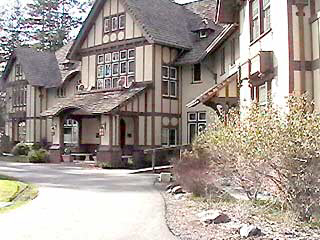Introduction
Founded in 1887, Gonzaga University got its start when the school’s founder bought 320 acres of land in Spokane, Washington for $936 in silver dollars. The school opened its doors as a college for young men who wanted to go into the priesthood and enrolled 18 male students. who received their schooling from Jesuit priests, in its first year of operation.
Today’s Gonzaga is a coeducation, private, four-year institution on a 131 acre campus on the banks of the Spokane River. The campus includes more than 105 buildings and continues to grow rapidly with new construction of a number of facilities. Enrollment is over 7,500 students, with the majority of those undergraduates.
The University’s educational philosophy is based on the Ignatian Jesuit model of educating the whole person – mind, body and spirit.

